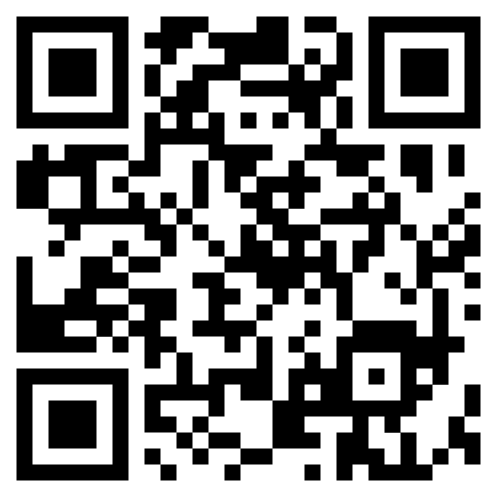
Guides to good practices with respect to the environment
Guides for citizens
1. Introduction to Good Environmental Practices
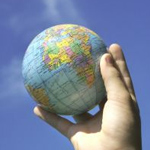 Introduction to Good Environmental Practices – With better planning, knowledge and management of our every day actions, we can greatly reduce the impact they have on the environment. The implementation of the three “R’s” is fundamental: Reduce, Recycle and Reuse. Furthermore, by reducing the consumption of energy, water and other resources, we are both helping the planet and saving money. In this manual you will find all the terms and definitions you should know about this topic.
Introduction to Good Environmental Practices – With better planning, knowledge and management of our every day actions, we can greatly reduce the impact they have on the environment. The implementation of the three “R’s” is fundamental: Reduce, Recycle and Reuse. Furthermore, by reducing the consumption of energy, water and other resources, we are both helping the planet and saving money. In this manual you will find all the terms and definitions you should know about this topic.
2. Water
 Water is one of the most precious natural resources that exist on our planet, and it is essential for life.
Water is one of the most precious natural resources that exist on our planet, and it is essential for life.
In this manual you will find information about the water cycle and its characteristics, as well as the amount of water available on Earth, its hydrological cycle, its global consumption as well as its consumption in Spain, the sources of pollution…and advice on how each person can save water.
3. Biodiversity
 Did you know that there are currently 1,600,000 species in existence? Or which ecosystems are home to the widest range of species? Did you know that it is the landscape heterogeneity that provides biological diversification? It is already known that diversity is the spice of life. Maybe you wrongly thought that everything had already been discovered, however, there are a countless number of areas yet to be explored and discovered. Unfortunately, if the current rate of environmental deterioration continues we will never be aware of many species maybe you have not heard that we are nearing a sixth mass extinctiona.
Did you know that there are currently 1,600,000 species in existence? Or which ecosystems are home to the widest range of species? Did you know that it is the landscape heterogeneity that provides biological diversification? It is already known that diversity is the spice of life. Maybe you wrongly thought that everything had already been discovered, however, there are a countless number of areas yet to be explored and discovered. Unfortunately, if the current rate of environmental deterioration continues we will never be aware of many species maybe you have not heard that we are nearing a sixth mass extinctiona.
4. Climate Change
 The greenhouse effect and climate change are two terms that go hand in hand, assuming that it deals with negative impacts on the planet. You probably associate it with the melting ice caps without knowing exactly what its affects are. However, did you know that the greenhouse effect is a natural phenomenon, whereby life on this planet is possible? Thanks to this manual you will discover why, under which conditions and what role we play in the process. Ultimately, discover why the greenhouse effect has been given a bad name.
The greenhouse effect and climate change are two terms that go hand in hand, assuming that it deals with negative impacts on the planet. You probably associate it with the melting ice caps without knowing exactly what its affects are. However, did you know that the greenhouse effect is a natural phenomenon, whereby life on this planet is possible? Thanks to this manual you will discover why, under which conditions and what role we play in the process. Ultimately, discover why the greenhouse effect has been given a bad name.
5. Energy
 As you already know, there are two energy sources in use, depending on if they are generated permanently, that is to say, they are inexhaustible. These are renewable energies. The others are non-renewable energies, whose deposits are depleting as we use them.
As you already know, there are two energy sources in use, depending on if they are generated permanently, that is to say, they are inexhaustible. These are renewable energies. The others are non-renewable energies, whose deposits are depleting as we use them.
In this manual you will find the types of renewable energies that exist. You will be surprised to discover that energy can be obtained from waves or from biomass.
If we want to respect the environment, our aim is to completely substitute fossil fuels, so as to stop emissions into the atmosphere.
6. Sustainable living habits
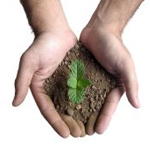 Today, the technological advances are so advanced that we can carry out tasks with great ease that a few years ago seemed impossible to do. This is precisely why our habits are becoming more and more sedentary.
Today, the technological advances are so advanced that we can carry out tasks with great ease that a few years ago seemed impossible to do. This is precisely why our habits are becoming more and more sedentary.
The sustainable development implies the satisfaction of our current needs without compromising our future ones. Nonetheless, each time we carry out any type of action in our day to day lives, we are failing that principle. This manual will help you find out to what extent your actions affect the planet and what you can do to fix this.
7. Waste
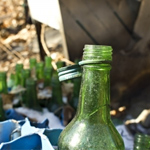 To recycle or not to recycle? That is the question. This manual will help you resolve any doubts you may have with regards to what you should do with broken mobile phones, where to throw away medicines, or how to dispose of fluorescent tubes. You will also have access to a list of the nearest recycling points, what types of waste exists and how it should be separated. Remember the 4 “R’s” rule: reduce, reuse, recycle and recover.
To recycle or not to recycle? That is the question. This manual will help you resolve any doubts you may have with regards to what you should do with broken mobile phones, where to throw away medicines, or how to dispose of fluorescent tubes. You will also have access to a list of the nearest recycling points, what types of waste exists and how it should be separated. Remember the 4 “R’s” rule: reduce, reuse, recycle and recover.
8. Noise
 Who hasn’t at some point complained about the amount of noise they hear around them? At present, we are exposed to very high levels of noise that affect our health, for example headaches or gastritis. Check what the most irritating noise levels are and their consequences.
Who hasn’t at some point complained about the amount of noise they hear around them? At present, we are exposed to very high levels of noise that affect our health, for example headaches or gastritis. Check what the most irritating noise levels are and their consequences.
9. Sustainable Transport
 How can we save money without destroying the environment? Join the sustainable transport movement. In this manual you will find the best advice, tricks and actions to take to travel everywhere at half the cost, without having to give up your freedom of movement. Read more and learn about the benefits of sustainable transport.
How can we save money without destroying the environment? Join the sustainable transport movement. In this manual you will find the best advice, tricks and actions to take to travel everywhere at half the cost, without having to give up your freedom of movement. Read more and learn about the benefits of sustainable transport.
Guides for companies
1. Good environmental practices in the office
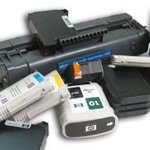 At present, a large number of professionals carry out their every day work in offices. Therefore, it is important to reduce the environmental impact as much as possible in this sector. Luckily, thanks to the characteristics of these activities, the good practices that should be established are incredibly simple and economical (they do not imply large prior payments). In addition, they have the advantage of having very quick results. This manual demonstrates the incorrect practices as well as the good ones that should be introduced into the office. It also tries to resolve some of the most frequently asked questions.
At present, a large number of professionals carry out their every day work in offices. Therefore, it is important to reduce the environmental impact as much as possible in this sector. Luckily, thanks to the characteristics of these activities, the good practices that should be established are incredibly simple and economical (they do not imply large prior payments). In addition, they have the advantage of having very quick results. This manual demonstrates the incorrect practices as well as the good ones that should be introduced into the office. It also tries to resolve some of the most frequently asked questions.
2. Saving paper in the office
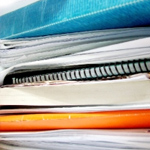 Printouts, faxes, documents, files... paper has a myriad of uses inn our working environment. That is why we should be made aware of saving and managing it in order to avoid day to day waste. With some simple steps you can make this possible.
Printouts, faxes, documents, files... paper has a myriad of uses inn our working environment. That is why we should be made aware of saving and managing it in order to avoid day to day waste. With some simple steps you can make this possible.
3. Implementation of the ISO 14001 Standard in companies
 Guide to the Implementation of the ISO 14001 Standard in companies – It is increasingly necessary to forge a commitment between the company and the environment, whether it is for social or economic needs, or legislative requirements. This commitment can be made by certifying your entity through the ISO 14001 Standard. Here you can find out more about.
Guide to the Implementation of the ISO 14001 Standard in companies – It is increasingly necessary to forge a commitment between the company and the environment, whether it is for social or economic needs, or legislative requirements. This commitment can be made by certifying your entity through the ISO 14001 Standard. Here you can find out more about.
4. EMAS Regulation
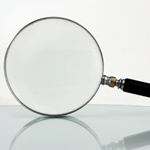 All the companies that have introduced an environmental management system can voluntarily submit it to the Eco-Management and Audit Scheme. How will this benefit by company? How can I choose its recognition? What differences are there between EMAS and ISO 14001? Find out here.
All the companies that have introduced an environmental management system can voluntarily submit it to the Eco-Management and Audit Scheme. How will this benefit by company? How can I choose its recognition? What differences are there between EMAS and ISO 14001? Find out here.
5. EFQM Model
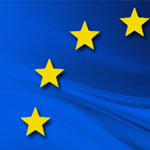 The EFQM Model (European Model of Business Excellence) is a certificate that verifies the company’s full commitment to quality and to the environment, geared towards excellence. We have gathered all the main ideas of this new model in this document, as well as the steps to be followed by the company for its acceptance.
The EFQM Model (European Model of Business Excellence) is a certificate that verifies the company’s full commitment to quality and to the environment, geared towards excellence. We have gathered all the main ideas of this new model in this document, as well as the steps to be followed by the company for its acceptance.
Cerrar [X]Uso de cookies
Utilizamos cookies propias y de terceros para mejorar nuestros servicios y recopilar datos estadísticos sobre hábitos de navegación. El uso de cookies es necesario para la notificación de incidencias. Si continúa navegando, consideramos que acepta su uso. Puede obtener más información, o bien conocer cómo cambiar la configuración, en nuestra Política de cookies




